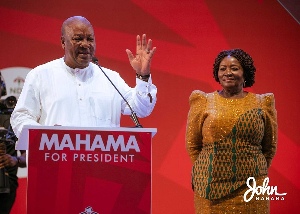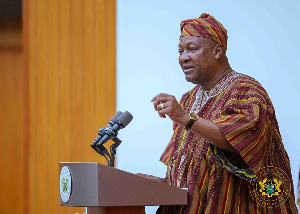The Legon Observer of old and Oxford University Press were subsidiary college institutions with independent editorial boards and produced publications of a very high standard.
But today, in one ghanaian college, faculty have complained that the editorial board was restricting articles to a maximum of 1,500 words for a journal publication.
In yet another, faculty have complained that a subsidiary publication which includes external faculty/independent scholars as members cannot be in their interest.
Consequently, the noble objective of helping faculty write and publish, with an independent editorial board assisting the faculty/institution gain credibility has become still born.
The Royal Society (RS) has published answers for such concerns, on their site royalsociety.org, under the heading “Independent Research Organisation Eligibility Criteria”.
Suffice it to appropriate the RS criteria for mentee colleges in ghana thus:
They must “possess an existing in-house capacity to carry out research” in their chosen field; “demonstrate an independent capability to undertake and lead research programmes”; show “Sufficient high-quality current research capacity”; boast of “a minimum of ten researchers with a significant number of publications and/or other outputs that have been subject to the highest standards of peer review”; and show “a track record of staff, while employed at the organisation, leading or co-leading innovative research projects in the previous five years, including directing other postdoctoral researchers and/or research students”.
Part of the ghanaian problem is found in Prof. Justice AKP Kludze’s February 2010 JB Danquah Memorial Lecture.
With laughter Kludze recounted an anecdote from a former British secretary of the Ghana Civil Service who heard President Nkrumah say “Only a few of us here know what we are doing”.
Well, now, how portentous and prescient of Nkrumah?
In a chat with my WhatsApp friend, Uncle K.O., recently, about the dearth of Ghanaian scholarly publications, he informed me that the University of Ghana, for example, only relatively recently decided to make academic publications a criterion for promotion.
“Tertiary level politics could be dangerous at times,” on account of “publish or perish”, added Uncle K.O. who is also a lecturer.
At GIMPA, a PhD holder/lecturer in “Public Administration” was “given a letter for him to present his published work or be sacked after about six years of no publication” when he “luckily” had a Ghana Civil Service/Public Service appointment, and he quickly changed his schedule to “Adjunct Lecturer”.
“He now interviews prospective senior staff who want to join the civil/public service,” our source added. “To avoid those problems the authorities have now told us they are going to enforce the requirement that PhD candidates must have publications before they graduate.”
EROA, another friend, has never hidden his contempt for the paucity and quality of publications of a sitting minister/former lecturer, charging, “What did he publish before and after his PhD?”.
Dr. Alhaji Abubakari Siddiq Ahmed, Station Manager of Radio Univers 105.7FM, in the Radio Univers studio on 20 September 2019, told writersghana.com, “We have never surrendered the editorial direction of Radio Univers to the academic board or any student body”.
Outside of academia, our experience with scholarly publications are that ghanaian masters/PhDs grads do not want to see red ink/tracked changes in their returned work; they resent their work being edited.
But what else is an editorial board supposed to do?
The former will therefore not subject themselves to peer review: they will not write at all for someone to critique their work; they find it a humiliation.
Does that not indicate ignorant people with fragile egos!
Do you think your college journal can make significant progress with a stronger independent editorial board by involving independent scholars?
Is your college journal mainly for promotional purposes?
What has been your experience?
Feedback; ato@writersghana.com; www.writersghana.com; LinkedIn, Isaac Ato Mensah; Instagram, @atomenswriters; Twitter, @Atomens; Facebook, Writers and Shakespeares Ghana; Telegram, Isaac Ato Mensah; Quora, Isaac Ato Mensah; WhatsApp (+233) 020 022 0353.
Writers and Shakespeares Ghana Limited exist to be a moral and intellectual guide to the best practice of PR and integrated communications around the world, beginning with Ghana.
Opinions of Wednesday, 15 January 2020
Columnist: Isaac Ato Mensah















